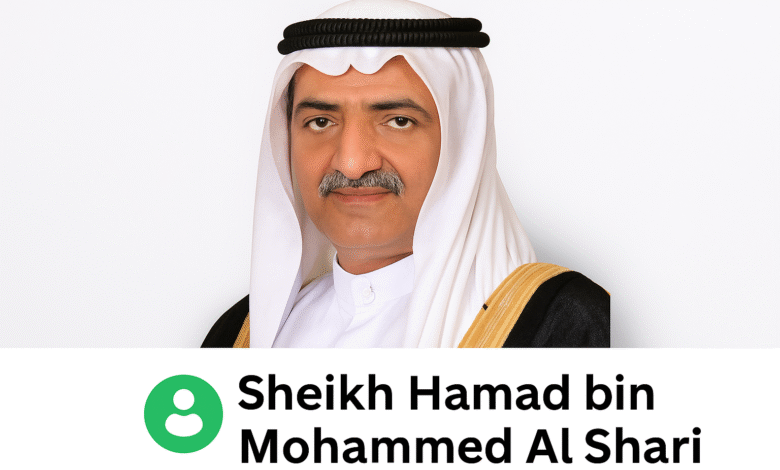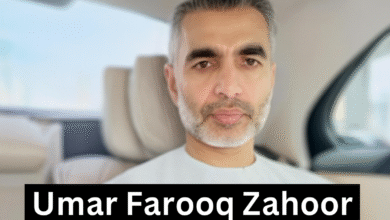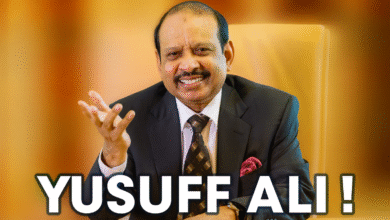Sheikh Hamad bin Mohammed Al Sharqi: Architect of Fujairah’s Modern Transformation
Five decades of visionary leadership shaping the eastern jewel of the UAE

Introduction
Sheikh Hamad bin Mohammed Al Sharqi, the longstanding Ruler of Fujairah, stands as one of the most transformative leaders in the United Arab Emirates. With over 50 years of visionary governance, he has played a pivotal role in reshaping Fujairah’s social, economic, and geopolitical identity. His commitment to sustainable development, education, healthcare, and heritage preservation has elevated Fujairah from a modest emirate into a thriving regional hub.
This article explores the life, leadership, and lasting legacy of His Highness Sheikh Hamad bin Mohammed bin Hamad bin Abdullah Al Sharqi, a member of the UAE Supreme Council and a pioneering figure in the federation’s success.
Early Life and Background
Birth and Upbringing
Fujairah born 22 February 1949, Sheikh Hamad is part of the Al Sharqi ruling family. His early life was steeped in the traditions and challenges of a developing coastal emirate. He is the son of Sheikh Mohammed bin Hamad Al Sharqi, the previous ruler who led Fujairah’s efforts for recognition among the Trucial States.
Education and Preparation
Sheikh Hamad received his foundational education in Fujairah before traveling to the United Kingdom to study Arabic at Eastbourne School in 1969. He further pursued military training at the prestigious Mons Officer Cadet School in 1970, laying the groundwork for his future leadership.
Political Ascendancy and Federal Service
Early Government Role
Soon after the formation of the United Arab Emirates, Sheikh Hamad became the first UAE Minister of Agriculture & Fisheries from 1971 to 1974. His early work in this role demonstrated his capacity for governance and national contribution.
Becoming Ruler of Fujairah
On 18 September 1974, following the death of his father, Sheikh Hamad ascended as the Ruler of Fujairah at just 25 years old. This transition marked the beginning of one of the longest continuous reigns in the UAE.
Modernizing Fujairah: Achievements and Vision
Fujairah Modernization Projects
From the outset of his reign, Fujairah ruler Sheikh Hamad launched major infrastructure programs. These included the development of road networks, modern hospitals, educational institutions, and ports. These Sheikh Hamad infrastructure projects laid the groundwork for a modern economy.
Industrial and Energy Expansion
His Highness’s economic vision took a major leap with the creation of the Fujairah Free Zone (1983) and the Fujairah Petroleum & Industries Zone (FOIZ). These zones attracted international investment and turned Fujairah into a logistics powerhouse. The Abu Dhabi–Fujairah oil pipeline, completed under his oversight, positioned the emirate as a strategic oil export hub.
Global Trade and Logistics
With the development of Fujairah Port, the emirate became the second-largest fuel-bunkering port in the world. The Fujairah port bunkering hub significantly strengthened the UAE’s energy and logistics network.
Human Development Initiatives
Healthcare and Education
Under Sheikh Hamad’s rule, healthcare facilities grew dramatically. His vision brought about the creation of the Kuwaiti Hospital and several modern medical centers—key elements in the healthcare expansion Fujairah experienced.
The education initiatives Fujairah ruler implemented include schools, vocational training centers, and higher education institutions, ensuring generational upliftment.
Cultural Heritage and Tourism
Cultural Restoration Projects
A protector of tradition, Sheikh Hamad cultural heritage preservation efforts led to the restoration of landmarks like the Fujairah Fort and Al Bidya Mosque, the oldest mosque in the UAE.
Fujairah Tourism Development
These efforts fed into broader Fujairah tourism development, blending heritage with modern hospitality to attract international tourists.
Diplomacy and Federal Role
UAE Supreme Council and International Engagement
As a member of the UAE Supreme Council, Sheikh Hamad Al Sharqi UAE supreme council role includes active participation in federal decisions. He regularly attends international summits and represents the UAE at the Arab League, solidifying his status as a respected Arab League UAE representative.
Inter-Emirate Cooperation
He is instrumental in maintaining inter-emirate cooperation, ensuring Fujairah’s alignment with broader national strategies and contributing to federal unity.
50-Year Reign: A Generational Legacy
Golden Jubilee of Leadership
In 2024, Sheikh Hamad celebrated 50 years of reign, marking a historic milestone in Emirati leadership. This 50-year reign Fujairah 2024 celebration highlighted his accomplishments in governance, social welfare, and economic development.
Generational Leadership Al Sharqi
His son, Sheikh Mohammed bin Hamad, Crown Prince of Fujairah, is already active in governance, continuing the legacy of generational leadership Al Sharqi.
Lessons from Sheikh Hamad’s Rule
Leadership Insights
-
Strategic foresight: Initiating industrial and energy hubs decades ahead of demand.
-
People-centric governance: Prioritizing health and education systems.
-
Balanced development: Blending heritage conservation with modern tourism.
-
Diplomatic strength: Supporting the UAE’s stability through international relations.
These make his reign a model of sustainable development Fujairah emirate.
FAQs
Who is Sheikh Hamad bin Mohammed Al Sharqi?
He is the Ruler of Fujairah and a member of the UAE Supreme Council, known for over 50 years of transformational leadership.
When was Sheikh Hamad born?
He was born on 22 February 1949 in Fujairah.
What are Sheikh Hamad’s major achievements?
His work includes founding FOIZ, expanding Fujairah Port, modernizing education and healthcare, and restoring cultural sites.
What is his current role in UAE politics?
He continues to serve in the UAE Supreme Council and plays a key role in national policymaking and diplomacy.



